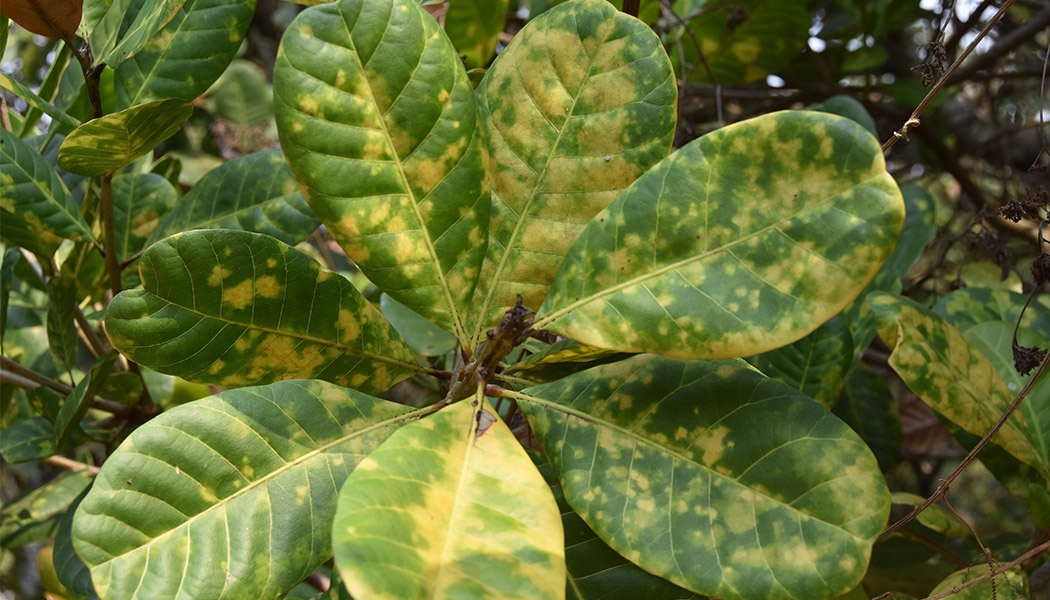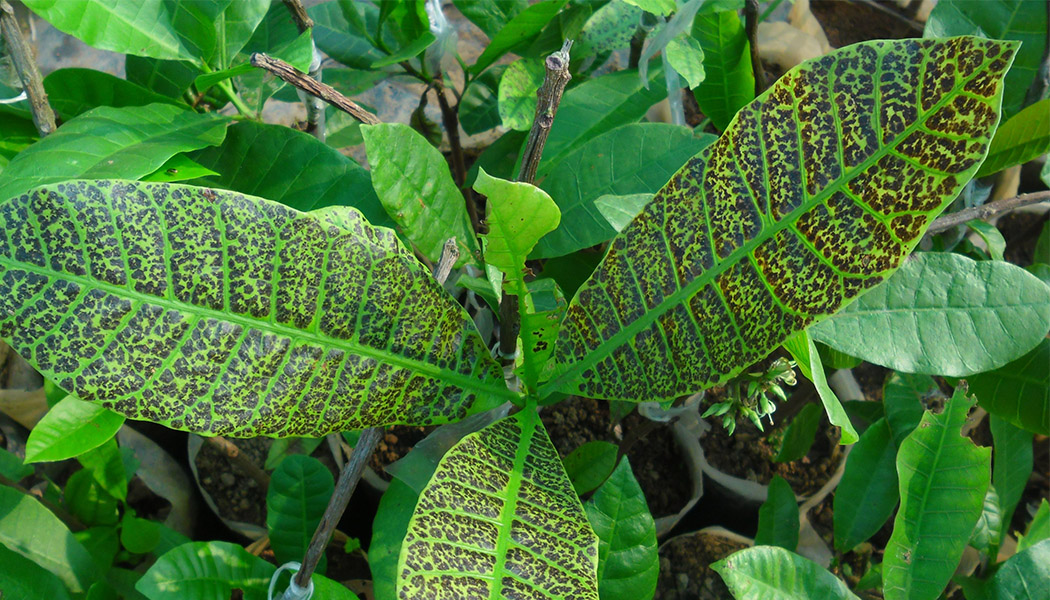Most of the cashew growing soils in India are low in fertility, which leads to reduced productivity of cashew. Being a perennial tree crop, cashew removes considerable amount of nutrients from the soil. If the continuous removal is not balanced by application of manures and fertilisers, the yield and quality of produce will be affected, apart from deterioration of soil health.
Cashew growing soils are generally acidic. Under high acidic soil conditions, nutrients such as phosphorus, calcium, magnesium, boron and molybdenum become unavailable, and nutrients such as iron, manganese and aluminium contents increase to toxic levels that affects plant growth. For correcting soil acidity, liming is to be undertaken after soil test. Further, as cashew growing soils are deficient in organic matter, application of farmyard manure or compost at the rate of 25 kg per grownup tree is recommended. Moreover, fertilizers are to be applied as per recommendation and preferably based on soil test report. Excessive or imbalanced application of nutrients leads to wastage of resources, environment pollution besides adverse effects on soil and plant health.

The deficiency of micronutrients can be known from the symptoms on cashew leaves and are ascertained by soil testing or leaf analysis. They can be corrected by either soil or foliar application. Excess application of nutrients especially the micronutrients leads to more damage than non-application, by inhibiting the availability of other nutrients. Foliar application of nutrients is the quickest way to correct major and minor nutrient deficiencies in cashew (For more info please visit Cashew Nutrient Manager https://cashew.icar.gov.in/soil/ )
For more information, please see - Cashew Nutrient Deficiency https://play.google.com/store/apps/details?id=com.townhub.nutrientdeficiencies.mobile
